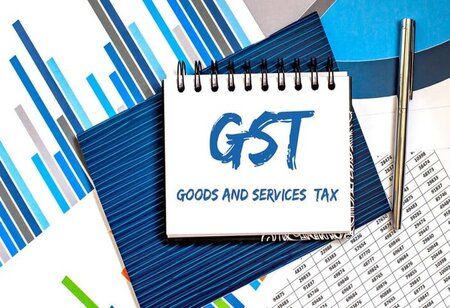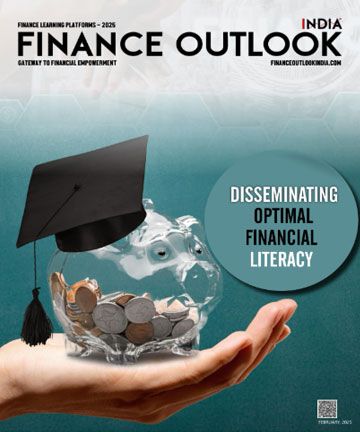Goods and Services Tax (GST) regime is evolving as it enters its seventh year of implementation. Recent advancements have resulted in major modifications aimed at reducing compliance requirements, streamlining processes, and delivering relief to taxpayers. The implementation of new requirements under Section 128A, modifications to the Invoice Management System (IMS), and other clarification from regulatory agencies represent significant changes in India's GST landscape. These revisions demonstrate the government's commitment to increasing tax efficiency while also addressing the problems that businesses and tax professionals encounter.
Recent Major Developments in GST
CESTAT Ruling: Significance of Due Process in Investigations
The Delhi Bench of the Customs, Excise, and Service Tax Appellate Tribunal (CESTAT) recently the importance of due process in investigations. The tribunal ruled that a statement made during an investigation before a Central Excise Officer cannot be considered reliable unless the person making the statement is interrogated as a witness.
This verdict came when Sharp Mint Ltd, a maker and exporter of menthol crystals, appealed a penalty issued based on such a statement. CESTAT suspended the punishment, emphasizing the importance of transparency and comprehensive assessment in legal proceedings. This decision serves as a reminder that the accused's rights must be protected during investigations to ensure fairness in the legal system.
Delhi's Congestion Tax Policy
The Delhi administration is considering imposing a congestion charge on all vehicles entering the city within certain hours in order to reduce traffic and pollution. These fees will apply exclusively to vehicles that usually enter at important border crossings between 8:00 and 10:00 a.m. and 5:30 and 7:30 p.m. Charges are to be imposed utilizing FASTag and ANPR technologies, which will simplify the entire procedure.
ITAT Condones the Delay in Filing the Appeal and Returns the Matter to the AO for a Fresh Assessment
The Surat Bench of the Income Tax Appellate Tribunal (ITAT) has excused the assessee's 159-day delay in submitting an appeal and reopened the case for a fresh assessment by the Assessing Officer. The delay was judged inadvertent since the assessee had opted out of receiving notices via email, resulting in a lack of awareness about the proceedings. The tribunal recognized the significance of the assessee's significant rights and ordered that a fair hearing be provided. The assessee was advised to guarantee future compliance. The appeal was granted for statistical reasons.
Non-resident Income is Classified as Business Income: ITAT upholds CIT(A) Ruling
The Delhi Bench of ITAT maintained the CIT(A) ruling that non-resident firms' revenue should be treated as business income and not taxed in India. Revenue has challenged the CIT(A) ruling, however the ITAT has now determined that this income did not accrue in India and hence is not payable under Indian income tax regulations.
Orissa High Court Stays Proceedings Due to Non-Mention of Notice: Maintaining Due Process
The Orissa High Court recently delayed income tax proceedings because a notice issued under Section 148A(d) of the Income Tax Act, 1961, was not mentioned in the GST site. Nirmal Kumar Kar, the petitioner, filed a challenge to the order issued on March 25, 2023, which commenced the proceedings. The court observed that, while a notice under Section 148 was displayed, there was no information on a notice under Section 148A(b). The division bench, chaired by Justice Arindam Sinha and Justice M.S. Sahoo, postponed the proceedings till the next hearing on November 13, 2024, allowing for additional study of the matter.
CBDT Amends Income Tax rules to Allow Parents to Claim TCS Credit for Minors
The Central Board of Direct Taxes (CBDT) has amended the Income Tax Rules to make it easier for parents to claim TCS credit for their minor children. These revisions, notified by the Finance (No. 2) Act, 2024, and CBDT Notification No. 112/2024, simplify tax credit claims for salaried employees and allow parents to claim TCS credit on their minor child's income. Form No. 12BAA has been introduced to allow salaried employees to provide information to employers for TDS deduction. Furthermore, Notification No. 114/2024 modifies Rule 37-I, allowing TCS credit to be claimed by the person in whose hands the minor's income is taxable.
DGFT Rases the Export Policy Conditions for Cough Syrup
The Directorate General of Foreign Trade (DGFT) has reduced export policy constraints for cough syrup exports to the United States, United Kingdom, Canada, the European Union, Japan, Australia, Singapore, the Republic of Korea, and Switzerland. Exporters are now excluded from necessary domestic testing if the syrup is produced in facilities certified by regulatory organizations in these nations. This exemption applies to plants that are certified to manufacture and export items to certain markets. The strategy intends to streamline exports, minimize redundancy, and boost the competitiveness of Indian pharmaceutical enterprises, in keeping with India's goal of increasing pharmaceutical exports while adhering to Good Manufacturing Practices (GMP).
GSTN Releases Additional FAQs on the Invoice Management System
The Goods and Services Tax Network (GSTN) has taken initiatives to help taxpayers understand the Invoice Management System (IMS) by providing additional Frequently Asked Questions (FAQs). These FAQs are intended to assist taxpayers with GSTR-2B submissions and to address important invoice processing issues. This program is part of the GSTN's larger efforts to simplify GST compliance and improve the system's use. By offering clear assistance through FAQs, the GSTN helps taxpayers understand the complexity of GST filing and reporting, ultimately enhancing tax compliance across the country.
GST on Corporate Guarantees: AAR Clarifies the Reverse Charge Mechanism
The Rajasthan Authority for Advance Rulings (AAR) clarified the application of GST under the Reverse Charge Mechanism (RCM) to corporate guarantees. The AAR determined that GST is payable only once when the guarantee is provided and remains valid for a set of time, making it easier to tax such financial transactions.
This verdict provides much-needed clarification for firms dealing with corporate guarantees and assures that there is no double taxation under the GST scheme. It also emphasizes the AAR's responsibility in clarifying misunderstandings in tax rules and providing practical answers to businesses.
CBDT Exempts RBI Payments from TCS Requirement to Strengthen Financial Ecosystem
The Central Board of Direct Taxes (CBDT) Exempted payments made by the Reserve Bank of India (RBI) from tax collection at source (TCS) under Section 206C of the Income Tax Act. By exempting RBI-related payments from TCS, the government ensures that financial operations run efficiently, especially for enterprises that deal with central banking institutions. This step is part of a bigger effort to reduce unnecessary regulatory expenses and improve banking sector efficiency.
Details About GST Interest and Penalty Waiver Applications Under Section 128A
Section 128A of the Central Goods and Services Tax (CGST) Act provides a critical relief option for businesses by waiving interest and penalties for claims relating to fiscal years 2017-18, 2018-19, and 2019-20. The Ministry of Finance recently clarified the application process and eligibility requirements for this plan, which aims to reduce taxpayers' compliance burden.
Taxpayers with pending claims under Section 73 can file waiver applications using FORM GST SPL-01 or SPL-02, depending on the stage of the case. The submission date is March 31, 2025, and each notification or order must be submitted separately. These applications are processed by the appropriate officers, and orders must be issued on time. If the officer fails to react within the stated time range, the waiver is automatically granted.
In the event of refusal, the applicant may appeal the decision, concentrating entirely on the waiver's application rather than the merits of the original order. Furthermore, conditional releases demand payment of outstanding tax bills within three months. This scheme provides a substantial opportunity for enterprises to regularize their GST responsibilities with lower financial penalties, fostering consistent implementation of tax rules across jurisdictions.




